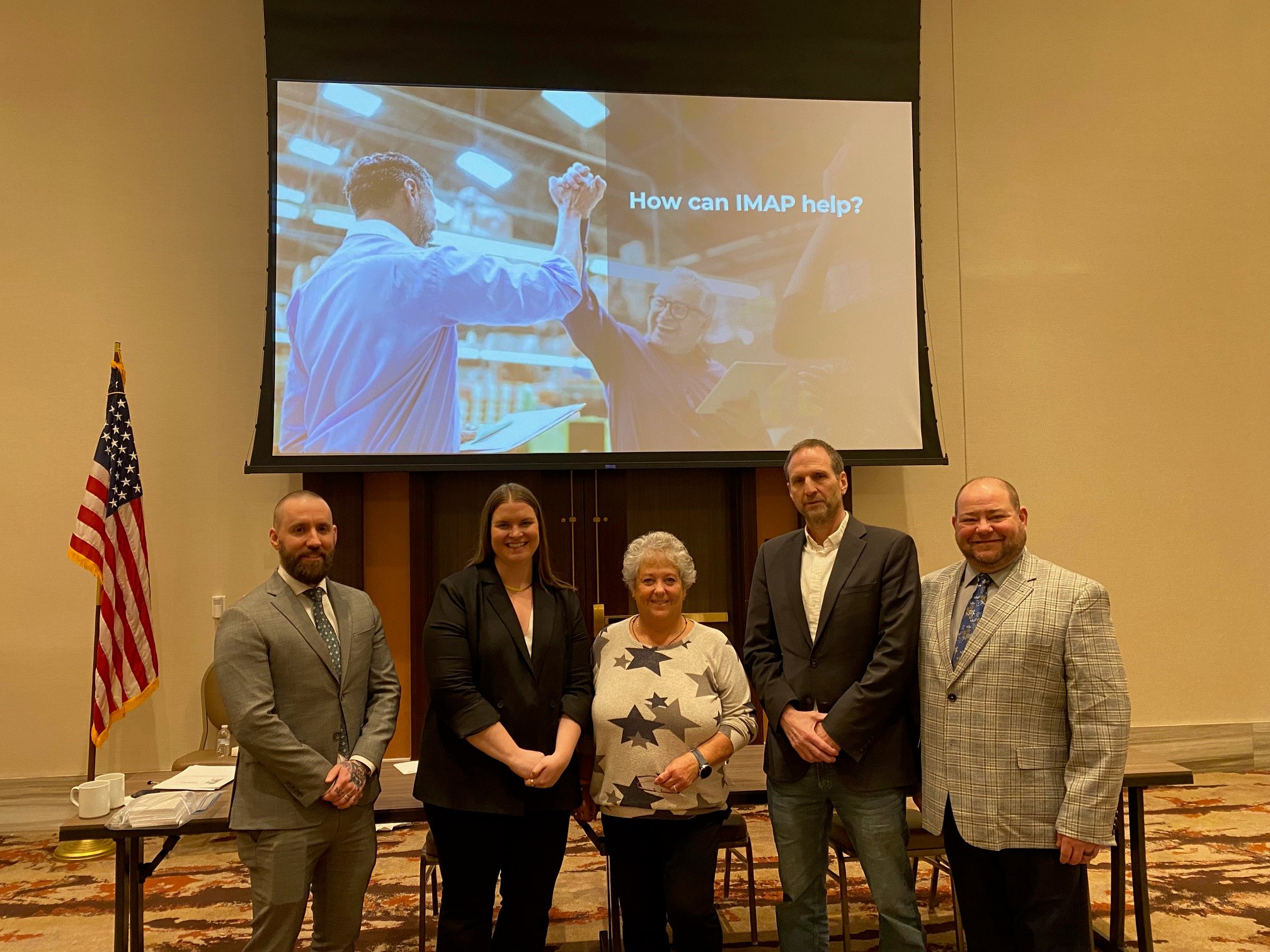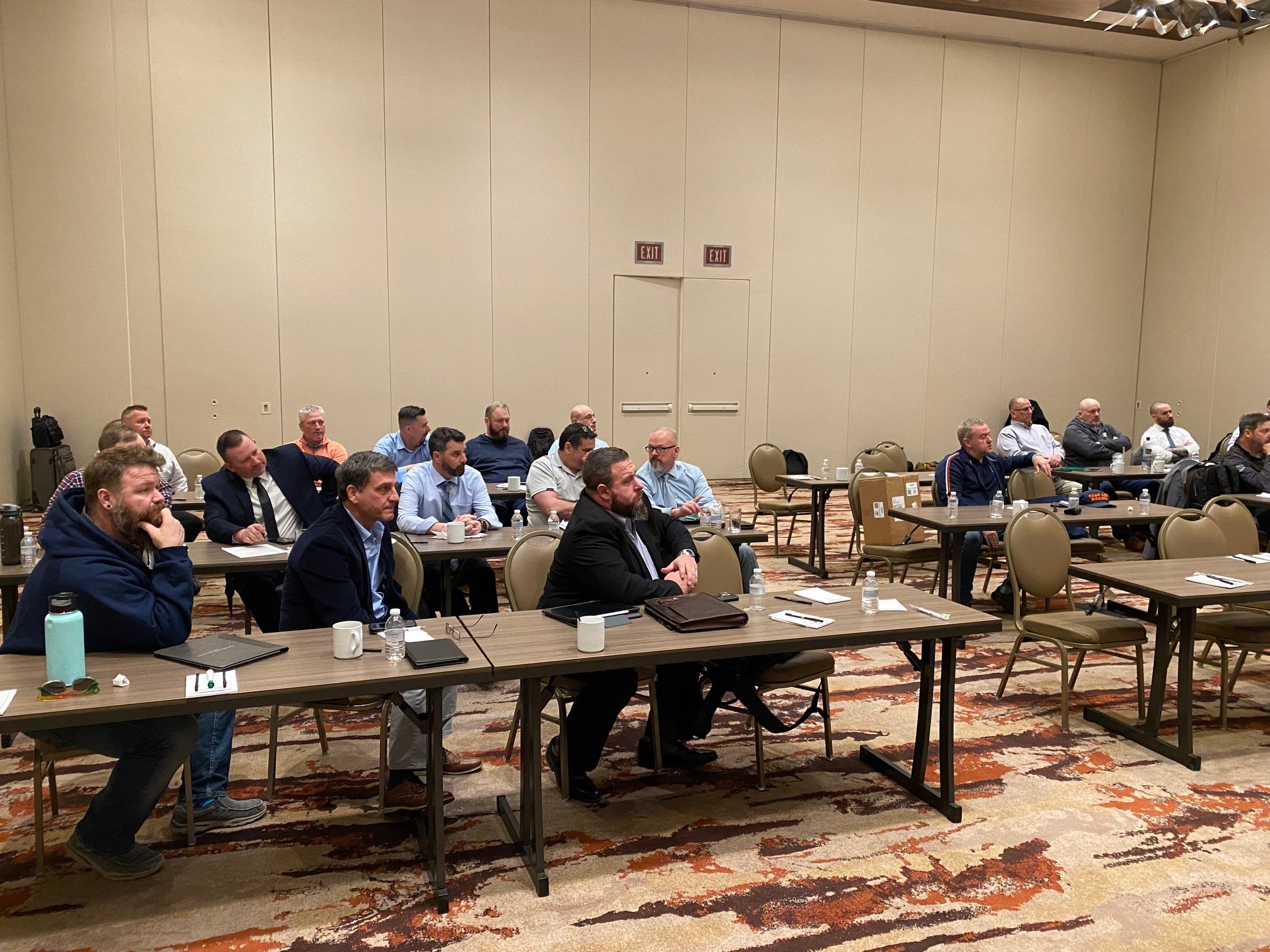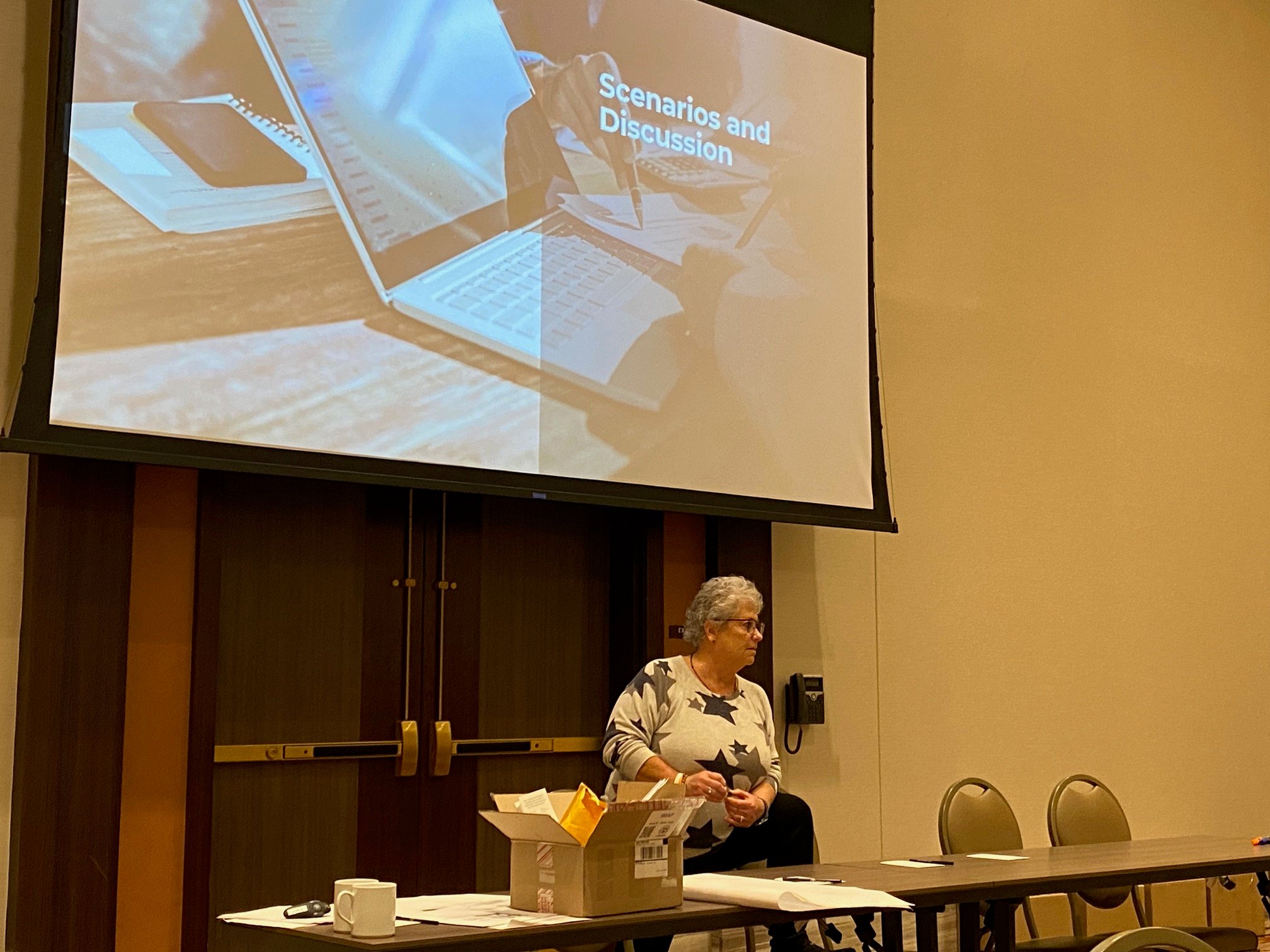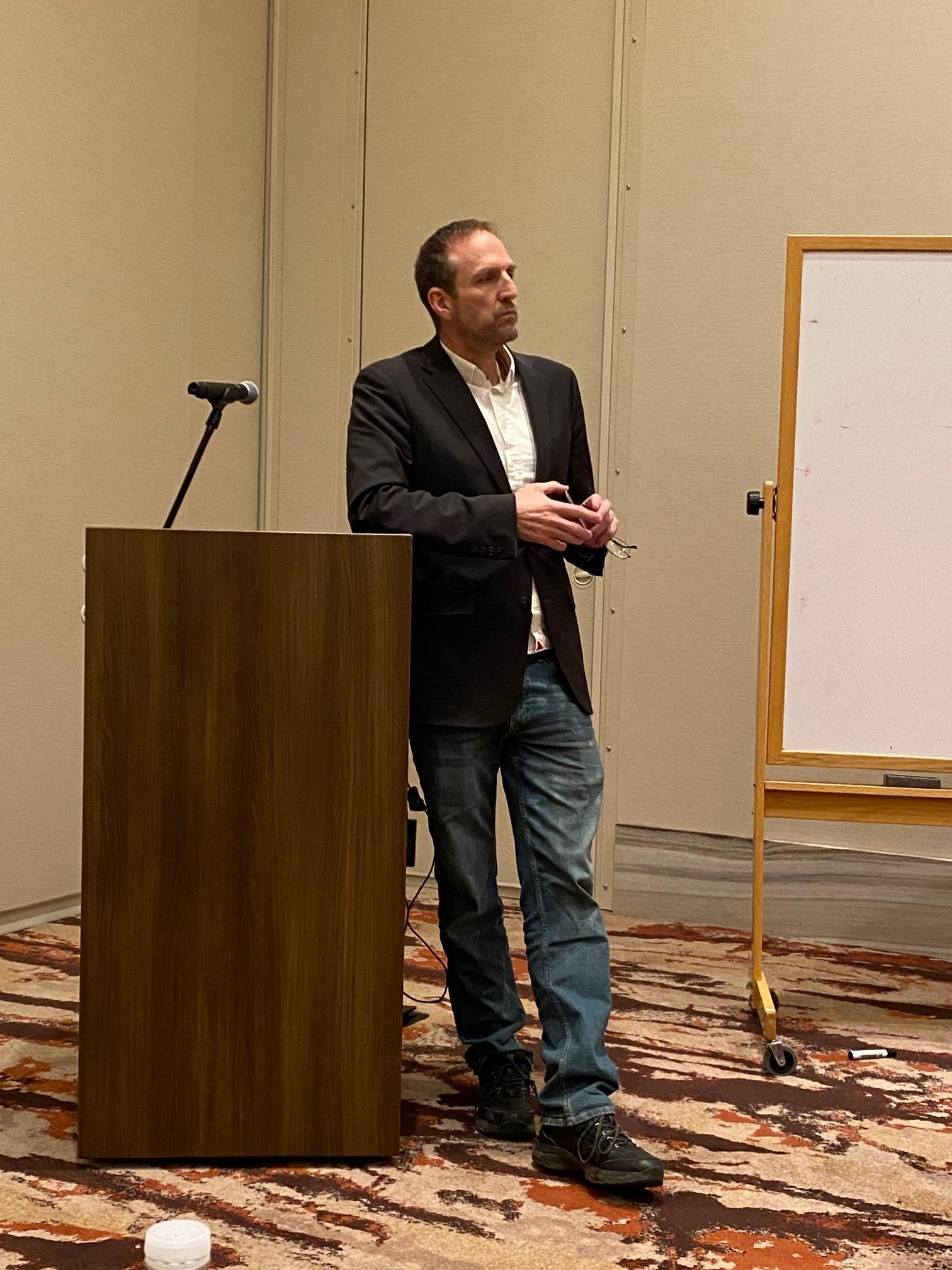
The Middle Atlantic States Conference hosted the initial Insulators Member Assistance Program (IMAP) Conference Level Training (CLT) event during its March Conference meeting.
Over 40 Local Union officers from the following Locals attended the training sessions: Local 2, Pittsburgh; Local 14, Philadelphia; Local 23, Harrisburg; Local 24, Washington, D.C.; Local 32, Newark; Local 38, Wilkers-Barre; and Local 89, Trenton and Atlantic City.
What is IMAP?
Those in attendance learned how IMAP helps members of the Insulators Union and their family members receive both the short-term and long-term care needed to address and treat mental health and addiction issues. It also provides suicide prevention services.
Developed over a year ago by the International Association of Heat and Frost Insulators and Allied Workers to offer services that were not available at the time, IMAP relies on two companies that specialize in helping those in need – Perspectives and YouTurn.
The program is designed to address a multitude of personal issues affecting members and their families. It differs from other healthcare-related needs because of the many hidden attributes and stigmas surrounding mental health and suicide prevention.
While this program is different from the Mental Health Awareness offered by the Mechanical Insulators LMCT, the IAHFIAW hopes IMAP will play a significant role in providing help to those who need it.
Training our union leaders
The International Association of Heat and Frost Insulators and Allied Workers General Executive Board received a brief overview of CLT on March 11 in Phoenix.
Following the GEB, the Mid-Atlantic States Conference became the first to implement IMAP through the Conference Level Training.

The event was facilitated by Gina Higgin, Perspectives Executive Account Manager, and Richard Jones, YouTurn Chief Clinical Officer, who presented on multiple topics of the program.
The training discussed:
- IMAP is a place to start, as it is a comprehensive resource for union members and leaders.
- Communication: How we communicate and how to best communicate with others through a behavioral model.
- Understanding mental health/substance use disorder (SUD), its impact, warning signs and how to address/approach someone with an issue.
- Many factors contribute to the risk of suicide and why working in the building trades poses a greater mental health challenge.
- Stress – both emotional and physical.
- Culture of substance use/abuse.
- Long hours and fatigue.
- Shame and fear of judgment.
- Stigma and fear of consequences of reaching out for help.
- Exposure to psychological trauma.
- The ways substance use/abuse affects the brain and the thought process, signs and symptoms of impairment.
- Why family can both help and hurt someone with SUD.
- How to approach difficult situations and provide support; how to have a productive conversation; and the best way to provide resources.
- The steps in the process.
- The importance of communication skills.
Higgin called the first training a success.
“The participants learned not only a process, but also something about themselves as individuals and leaders,” she said. “The length of this program may seem like a lot of time; however, it was packed with energy and collaboration. The time flew by, and participants seemed appreciative of what it offered and were engaged in the process.”

As Jones noted, there is a silent crisis killing men and women throughout North Amercia, and this training can help make an impact.
“If we are going to get ahead of this suicide and overdose crisis, we need all hands-on deck,” he said. “This movement starts at the top, and the leaders of the Insulators Union have embraced this challenge. The future is bright.”
The need to communicate
The common thread among all the topics discussed is the ability to communicate. Most leaders possess this ability, but some need to be reminded of how it works in order to properly conduct outreach.
The program's effectiveness and success will be directly related to the outreach effort. It is vital to get the information out to the members to make them aware of the assistance available. It must be done with a level of attention that offers some not-so-normal conversations, understanding and compassion because most individuals who need assistance are often reluctant to realize it.
“Outreach is essential from all levels of this partnership: International, Conference, Locals, coordinators and key individuals,” said Higgin. “Success will happen using as many modes of communication as possible including technology, paper (hard copies) and sharing individual experiences.”
“Outreach is the cornerstone of the IMAP program. The biggest challenge is raising awareness and creating an environment where people will utilize services. Creating a culture where members are comfortable accessing the help they need. This is best accomplished via collaboration and partnership across all levels,” Jones added.

The LMCT is proud to help spearhead the outreach effort.
“This is such an important issue,” said LMCT Executive Director Pete Ielmini. “It is imperative that we do everything within our power to not only make the members aware of the program, but to encourage them to use it to seek the help they need.”
As part of the outreach effort, it is imperative to make members aware that IMAP is 100 percent confidential. Nobody – not Local Union leaders, contractors, co-workers or even fellow members – will know who is seeking help.
IMAP training is available to all union leaders
With the program in place and the pilot program complete, the next step is to train more union leaders at the Conference level about the tools IMAP provides to help the members and their families.
While the union’s talented leaders need to know how to use the IMAP tools, it is even more important that they undergo training to offer it to their members.
“Tools are important to help us get our work done and connections made,” said Higgins. “The experience of this training begins to reach the important roles we have in each other’s lives. The training is a tool we can offer, and follow-up will be essential to implement and reach out to all levels of the members.”
IMAP Conference Level Training sessions, which are hosted by representatives from Perspectives and YouTurn, are now being offered to union leaders and their respective Conferences.
This training will not turn union leaders into a health professional or psychological experts, but it will help them communicate to their members that professional assistance is only a phone call or a click away.


Comments